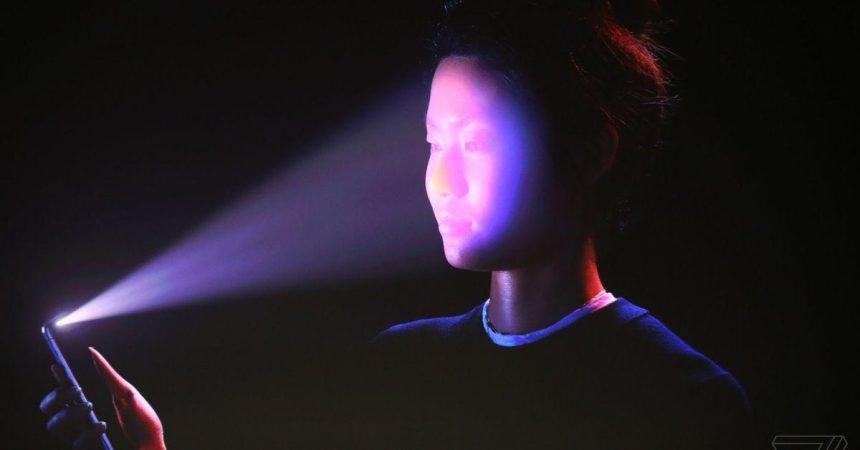Back in late August, I interviewed Dr. Mohamed Lazzouni, chief technology officer at biometrics company Aware. In my story, Dr. Lazzouni spoke extensively of building authentication technologies which not only redefine the concept of confirming one’s identity, they present unique opportunities in access for the disability community. Aware, Dr. Lazzouni said, isn’t in the business of making consumer-facing products, but the company is nonetheless cognizant of the responsibility to build technology with empathy and equality in mind.
Alexey Khitrov has been similarly dedicated to such solutions.
Khitrov presides over ID R&D, a Mitek company, a New York-based biometrics firm that, like Dr. Lazzouni and Aware, focuses its work on building biometric authentication software with a nod towards accessibility and inclusivity. On its website, ID R&D says it delivers “naturally effortless, AI-based biometric authentication software” in products like “mobile, web, and telephone channels, as well as conversational interfaces, [internet of things] devices, and embedded hardware to improve security and significantly reduce friction in the user experience.”
In an interview with me conducted earlier this month via videoconference, Khitrov explained ID R&D focuses its work specifically on “voice and face modalities” with the latter focused on liveness. The company’s software has the ability to distinguish between a picture of a person and a picture of a person on a screen, with Khitrov telling me it’s a “very important capability” to have right now because the majority of biometric security attacks are based not on mere impersonation, but through the data upon which deep fakes can be easily generated. Moreover, Khitrov caveated that although the work he and his team do is important, it’s not exactly the sexiest nor most exciting endeavor in the world. To that end, the aforementioned “naturally effortless” portion of ID R&D’s mission involves natural movements—blinking an eye or moving one’s head, for example—such that it validates a person’s liveness while allowing customers, Khitrov told me, “to actually avoid and remove this unnecessary step in the user experience when it comes to syndication and access to various resources.” He added a similar approach is taken to voice, saying the company’s software is able to differentiate between a person’s true voice to that heard on a recording.
“We’re really focusing on bringing the best available tech and science into this world, and we know the performance benchmark of evaluations and so on,” Khitrov said of his company’s ambitions. “We’re focusing on bringing the most exciting new technological breakthroughs and convert them into creating this more secure and frictionless world.”
Khitrov described the work he does in a nutshell as simplifying authentication and access because, for many people—like those who are disabled—the process of identifying oneself can oftentimes be difficult. Thus, the software built by Khitrov and team is ultimately intended to break barriers and “[make] these technologies and services more accessible to all of our users.” When a piece of technology requires a lot of labor from users, Khitrov added, it introduces a great deal of friction to operation and the overall experience. This problem is obviously exacerbated for someone who literally lacks the ability to perform certain actions, so Khitrov said ID R&D’s software is very intentionally designed to deliver what he called a “frictionless” experience to customers.
Khitrov expressed enthusiasm for the developments in the generative AI arena, telling me society is in the throes of a “new kind of new technology cycle that we haven’t seen for quite some time.” AI, he said, is growing at an exponential clip, but acknowledged development can be a double-edged sword. He cited AI’s potential in doing absolute good for the world, certainly for the disability community, with voice cloning like Apple’s Personal Voice accessibility feature new to iOS 17. A person like the late Stephen Hawking could have had his voice voice preserved via cloning and used it to communicate instead of the “quite metallic” version that’s ironically become somewhat of a trademark for the esteemed physicist and cosmologist. On the other hand, however, Khitrov said AI’s ever-burgeoning capabilities are appearing so rapidly that it’s easy for less scrupulous bad actors to “create new threats, new frauds, and new attack vectors.” Such scenarios underscores the work Khitrov and team have done in building a tool smart enough to discern between a real voice and that of an artificial, albeit clever, version.
When asked about his visions for the future, Khitrov responded generally by saying he believes society as a collective is “moving to the world of effortless security [and] effortless authentication.” More pointedly, he said he feels the emergence of advanced biometrics tech, coupled with AI, will soon enable us the ability to authenticate ourselves by simply moving naturally. This stands in stark contrast to today’s staid, command-like approach to Touch ID or Face ID on Apple devices, for example, where the features demand deliberateness in placing our thumb on the button or looking directly at the iPhone or iPad to get in.
Such fluidity in authentication would be a boon in terms of lessening cognitive load in addition to motor skills. Speaking of barriers, for many disabled people, there’s high friction involved in remembering how to place one’s finger on the Touch ID button, for instance. Depending on their level of cognition, it’s hard. Khitrov’s visions of the future transcend sheer convenience and efficiency into being true accessibility.
“The security measures would only be noticeable if somebody were trained to break them,” Khitrov said. “Only bad guys would even notice that they’re there, so we’ll be acting normally in our communications with devices—with the apps [and] the kinds of technology pieces all around us, and we would we will not see access to those [security] services as a barrier because they will be happening completely frictionlessly without any additional steps. That’s how we see the future.”
Read the full article here









